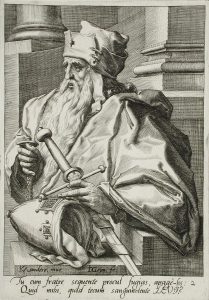The weekly Torah portion begins with the following verses:
“And the LORD said to Moses, “Phinehas the son of Eleazar, son of Aaron the priest, has turned back my wrath from the people of Israel, in that he was jealous with my jealousy among them, so that I did not consume the people of Israel in my jealousy. Therefore say, ‘Behold, I give to him my covenant of peace, and it shall be to him and to his descendants after him the covenant of a perpetual priesthood, because he was jealous for his God and made atonement for the people of Israel.’” (Numbers 25:10-14)
God’s highly positive words about Phinehas the son of Eleazar are very special and raise the question as to why Phinehas received such great honor? After all, we all remember that the Levites did basically the same thing after the sin of the Golden Calf (Exodus 32), so why were they denied the same honor?

Many Jewish Bible commentators have dealt with this question and came up with an interesting lesson, which manifested in the following medieval allegory:
Once upon a time there was an attempt to assassinate the king but the king’s body guard managed to prevent that at the last moment. The king thanked his body guard and this story was forgotten.
A year later, another attempt to assassinate the king was made, but this time it was not the body guard who saved the king but rather a simple
peasant who was in the right place at the right time and without hesitation he (the simple peasant) jumped in and saved the king. Then, the king declared a special day at the kingdom and threw a festive feast for the guest of honor – the peasant.
The king’s body guard was not so happy about all of the celebrations and asked the king:
“When I saved you last year, you just thanked me and that was it! No special celebrations or great feasts – why?” The king replied: “I appreciate what you did, no doubt, but the big difference between you and the peasant who saved me is that saving me is YOUR JOB…
In other words, it was expected from the Levites to do what they did in the story of the Golden Calf – and that is exactly the reason why Moses approached them and TOLD THEM to do what was needed.
However, Phinehas the son of Eleazar, did what he did WITHOUT BEING TOLD to do and without being in a position where it was expected of him to do that.
